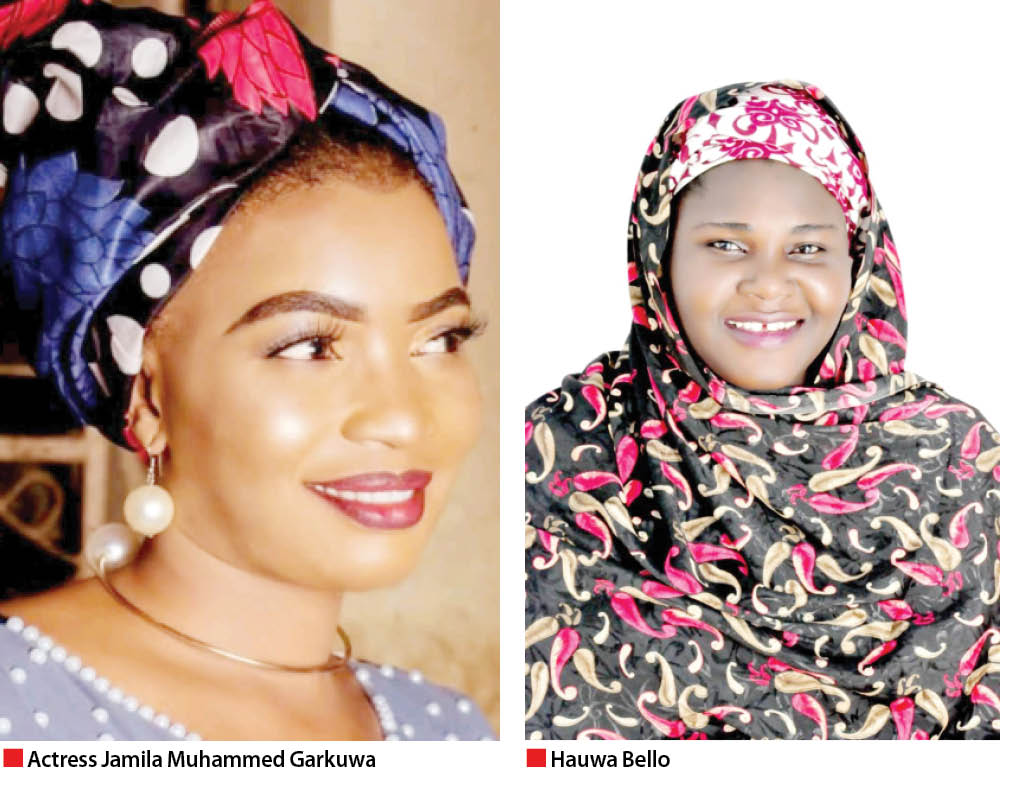Kannywood has been in existence for over two decades and in all its years of existence, its leadership and sensitive positions have been dominated and controlled by the men.
Investigations have also revealed that besides acting and costuming, female practitioners hardly get involved in other aspects of the industry.
Though at the initial stage, the Hausa film industry was perceived to be an interim engagement, but gradually the industry has become a child of necessity for socio-cultural development of the Hausa communities.
However, despite having a legislation that established the Kano State Censorship Board law of 2001 as a regulatory body, female practitioners were still considered as having less role to play in the industry’s development.
Similarly, with the industry’s gradual development, different guilds along professionalism emerged for different individuals based on their choices and preference and yet the females in the industry got virtually limited chance to excel professionally when their male colleagues were basically becoming highly famous and successful as well as highly placed in the society.
It was reliably gathered that the female practitioners in Kannywood have realized that they have to play their own tune as no one seems to be interested in playing their tune in the industry as the Hausa film making industry was gradually becoming a male dominated sector with females assuming the role of mere artists only.
As vast as the Kannywood film industry is, recent findings revealed that there is only one female film editor, few female producers and a director with no representation in cinematography and lighting among other practices involved in the industry.
Based on their lack of representation in most of the film making sectors in the industry, a move was made to establish what is known today as Kannywood Women Association of Nigeria (K-WAN). According to the chairperson of the newly formed association set up to uplift women participation in the industry, Hajiya Hauwa A. Bello, popularly known as Hauwa Editor, female practitioners have come to realize that they have missed a lot of opportunities that could have propelled women in the film industry to the highest peak of the profession.
The chairperson, who claimed to have been in the Hausa filmmaking business for over two decades, added that there is a need for women in the industry to wake up and push for better days ahead of their profession as women artists. “If we initially had the chance to explore the several opportunities in the industry, we would have been ahead of where we are today. Moreover, it is no longer news that the women in Kannywood have limited rights, and we feel that it is high time we protect those rights effectively. We have realized that individually, we have no capacity to pursue our goals, but as an association we will be able to pursue what is ours. It is apparent that women are left on their own to scout for opportunities and privileges in the industry,” she said.
The chairperson also revealed that with the establishment of K-WAN, women in Kannywood are gradually having a voice in the filmmaking business.
Similarly, actress, singer and producer Jamila Muhammad Garkuwa, who has been in the industry for over a decade, stated that her greatest dream is to see that women in Kannywood are allowed to explore all the avenues that will ensure their economic empowerment.
According to her, global best practices in film making have given women the right to participate in all sectors of film making practices. She explained that in line with that, she has been advocating on women to participate in the promotion of mass women participation in film making for their economic empowerment. Garkuwa claimed that she started as a singer, then moved to become an actress and later became a producer who has produced films in the industry.
She further stated that her greatest dream is to see the presence of women in places where there were no women before in film making practices.
“Women in Kannywood deserve more than what they are getting at present, most of the women are either actresses or otherwise, and also it will interest you to know that even the make-up artists in the industry are mostly men. The issue here is: are there no women in the industry or what is the reason behind ineffective utilization of the women as part of the industry’s coordinators and developers? These are the intrigues we hope to resolve gradually,” said Jamila.

 Join Daily Trust WhatsApp Community For Quick Access To News and Happenings Around You.
Join Daily Trust WhatsApp Community For Quick Access To News and Happenings Around You.


